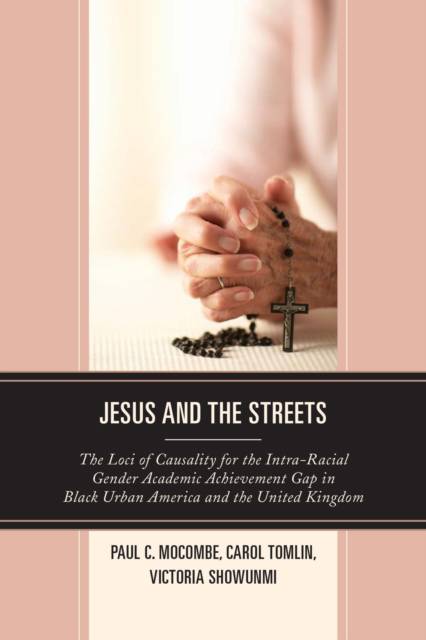
- Afhalen na 1 uur in een winkel met voorraad
- Gratis thuislevering in België vanaf € 30
- Ruim aanbod met 7 miljoen producten
- Afhalen na 1 uur in een winkel met voorraad
- Gratis thuislevering in België vanaf € 30
- Ruim aanbod met 7 miljoen producten
Zoeken
Jesus and the Streets
The Loci of Causality for the Intra-Racial Gender Academic Achievement Gap in Black Urban America and the United Kingdom
Paul C Mocombe, Carol Tomlin, Victoria Showunmi
Paperback | Engels
€ 67,95
+ 135 punten
Omschrijving
Against John Ogbu's oppositional culture theory and Claude Steele's disidentification hypothesis, this book offers a more appropriate structural Marxian hermeneutical framework for contextualizing, conceptualizing, and evaluating the locus of causality for the black male/female intra-racial gender academic achievement gap in the United States of America and the United Kingdom.
Specificaties
Betrokkenen
- Auteur(s):
- Uitgeverij:
Inhoud
- Aantal bladzijden:
- 116
- Taal:
- Engels
Eigenschappen
- Productcode (EAN):
- 9780761866190
- Verschijningsdatum:
- 20/11/2015
- Uitvoering:
- Paperback
- Formaat:
- Trade paperback (VS)
- Afmetingen:
- 147 mm x 224 mm
- Gewicht:
- 181 g

Alleen bij Standaard Boekhandel
+ 135 punten op je klantenkaart van Standaard Boekhandel
Beoordelingen
We publiceren alleen reviews die voldoen aan de voorwaarden voor reviews. Bekijk onze voorwaarden voor reviews.







